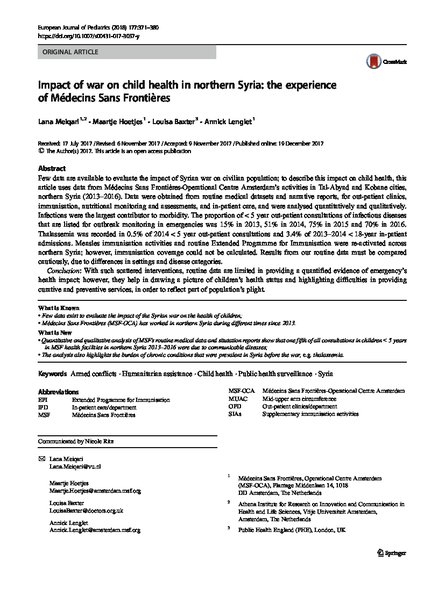
Few data are available to evaluate the impact of Syrian war on civilian population; to describe this impact on child health, this article uses data from Médecins Sans Frontières-Operational Centre Amsterdam’s activities in Tal-Abyad and Kobane cities, northern Syria (2013–2016). Data were obtained from routine medical datasets and narrative reports, for out-patient clinics, immunisation, nutritional monitoring and assessments, and in-patient care, and were analysed quantitatively and qualitatively. Infections were the largest contributor to morbidity. The proportion of < 5 year out-patient consultations of infectious diseases that are listed for outbreak monitoring in emergencies was 15% in 2013, 51% in 2014, 75% in 2015 and 70% in 2016. Thalassemia was recorded in 0.5% of 2014 < 5 year out-patient consultations and 3.4% of 2013–2014 < 18-year in-patient admissions. Measles immunisation activities and routine Extended Programme for Immunisation were re-activated across northern Syria; however, immunisation coverage could not be calculated. Results from our routine data must be compared cautiously, due to differences in settings and disease categories.
Conclusion: With such scattered interventions, routine data are limited in providing a quantified evidence of emergency’s health impact; however, they help in drawing a picture of children’s health status and highlighting difficulties in providing curative and preventive services, in order to reflect part of population’s plight.